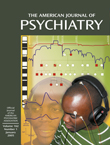Demystifying Anorexia Nervosa: An Optimistic Guide to Understanding and Healing
Happy families are all alike. Every unhappy family is unhappy in its own way.
Leo Tolstoy, Anna Karenina
My dear friend and colleague, Dennis Patrick Cantwell, M.D., former Joseph P. Campbell Professor of Child and Adolescent Psychiatry at the University of California, Los Angeles, spoke of the special suffering of his patients afflicted with anorexia nervosa. He noted their extraordinary efforts and endeavors to lose weight—including racing up and down multiple flights of stairs and even vaulting, jumping, and leaping four, five, and six steps at a time in his inpatient Child and Adolescent Psychiatric Unit to burn more calories, thereby wrenching their joints and straining their ligaments. Professor Cantwell pointed out, “You have to watch them like a hawk!” (1). Glen O. Gabbard, M.D., a professor of psychoanalysis, pointed out that one in seven of patients afflicted with anorexia nervosa—14%—die (2).
In Demystifying Anorexia Nervosa, Emeritus Professor of Psychiatry Alexander R. Lucas, M.D., provides a beacon of both reasonable hope and expectation. He quotes a mentor, Dr. Berkman, who treated hundreds of patients with anorexia at the Mayo Clinic from 1930 to 1960, as saying, “Don’t ever ask them what caused it because they don’t know” (p. 33).
Quintessential to early diagnosis with early intervention and, one hopes, a more favorable outcome is Professor Lucas’s helpful checklist for parents representing some of the changes that may well appear at the onset of anorexia nervosa (pp. 61 and 62):
Food avoidance Marked change in food preference Avoidance of family meals Excessive interest in food, cooking and recipes Excessive physical activity and exercise Unexplained disappearance of food Secretive vomiting Use of diet pills, laxatives, and diuretics Social withdrawal Failure to gain weight during the growth years Unexplained weight loss Delay in onset of menstrual periods Cessation of periods after they have begun
This well-written, well-referenced text documents much of the life’s work of a respected, knowledgeable, kindly, dedicated, caring mental health provider. This text will be helpful not only to patients suffering from anorexia nervosa and bulimia nervosa but also to their families. The book is a must-read for all of our mental health providers of inpatient, ambulatory, and partial hospitalization services for patients suffering with anorexic or bulimic eating disorders.
Medical students should be assigned to read this text before their psychiatry clinical clerkship. I plan to keep it on my desk for ready reference for treating patients, counseling families, and teaching students.
1. Grossman JB: Dennis Patrick Cantwell, MD, 1939–1997 (image, psych). Am J Psychiatry 2001; 158:546Link, Google Scholar
2. Gabbard GO: Psychodynamic Psychiatry in Clinical Practice, 3rd ed. Washington, DC, American Psychiatric Press, 2000, p 349Google Scholar



